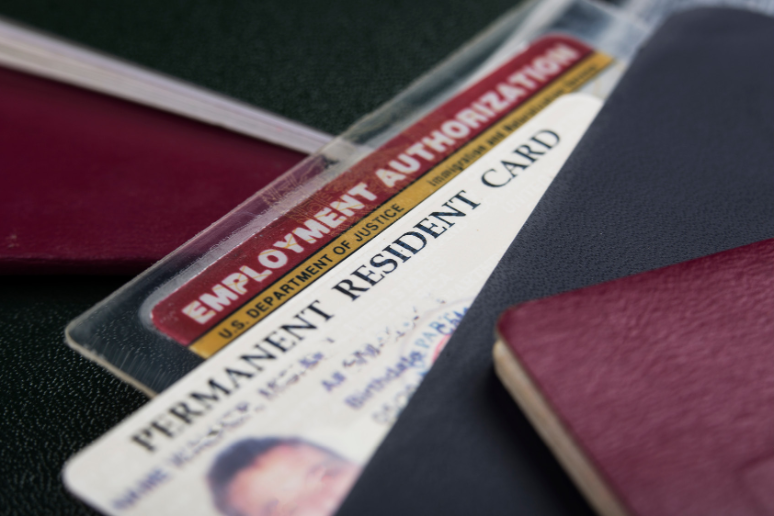The legal process by which a foreign citizen becomes a United States citizen is called naturalization. Naturalized citizens are those who became U.S. citizens after birth. For many it is the next step after securing lawful permanent residence through a green card. Naturalized citizens cannot have their citizenship revoked, and they cannot be deported. While naturalization and citizenship afford a person many of the same rights, the legal categories do hold some key differences: For one, a naturalized citizen cannot run for president.
The path to naturalization involves four steps. If you are applying for citizenship, the help of an experienced immigration attorney is necessary for navigating this process.
Step One
First you must determine whether you qualify to apply for citizenship. If you meet the following criteria, you can move to step two:
- You are 18 years of age or older.
- You are a lawful permanent resident.
- You have lived continuously for at least five years in the United States.
- You are of good moral character.
There are some exceptions to the residency requirement of at least five years listed above—as in the case of refugees, or those married to U.S. citizens—but the other criteria are relatively non-negotiable.
Step Two
Once you have determined that you are eligible to apply for citizenship, it is time to complete your application with the help of an immigration attorney. To complete Form N-400, Application for Naturalization, you will need to gather and prepare multiple documents to show your eligibility. If you currently reside outside of the United States, you will need additional documentation.
The application process is significantly more involved than just filling out a form. The process to naturalize can be lengthy, complicated, and costly. You must gather multiple documents and photographs, and undergo biometrics, which involves getting fingerprinted and submitting to background checks. With experienced legal counsel, you may be able to reduce your time and cost. More importantly, a skilled lawyer can help to ensure your success.
Step Three
Once your application has been accepted, you will be notified of an appointment for your interview. Do not be late for your interview, and do not arrive unprepared. You will need to bring identification and the appointment notice, and you must be prepared to answer questions about your background as well as questions related to the application you submitted. Following the interview, you will be required to take—and pass—an English and civics test.
Step Four
Once you’ve passed the required tests, you will receive a decision in writing from the United States Citizenship and Immigration Services (USCIS) on your application for naturalization. You will be notified of one of three decisions:
- Granted—This is the best news possible. USCIS has decided that you are eligible for naturalization.
- Continued—There is still hope. USCIS is requesting additional information. Maybe you failed to provide all necessary documents, or you failed the English or civics test on your first try.
- Denied—Although a denial can be appealed, this is the least favorable of the three possible decisions. USCIS decided that you are not eligible for naturalization.
If your application was denied, you may be able to appeal the decision. If you wish to file an appeal, you must do so within 30 days of being notified of your denial. Do not attempt to appeal a naturalization denial without the help of an immigration attorney. If your appeal is also denied, you can request further review of your case by the federal district court in your area.
Now what?
If you are successful, the final step is to take the oath of allegiance. At this ceremony, you will turn over your permanent resident card, answer questions about what you’ve been doing since your initial interview, take the oath, and, as long as all goes well, become a citizen of the United States. You may be able to participate in the naturalization ceremony on the day of your interview. If this is not possible, USCIS will notify you of a future date and time.
As with all immigration matters, applying for U.S. citizenship should not be handled without the help of an experienced, highly skilled immigration attorney. According to Davorin Odrcic, an attorney with Odrcic Law Group, LLC in Glendale Wisconsin, individuals who are interested in applying for naturalization should at the very least consult with an immigration lawyer to confirm basic eligibility.
“For permanent residents with criminal convictions, a consultation is strongly recommended to determine if a criminal record would impact the good moral character requirement, or even worse, subject that person to removal proceedings,” Odrcic says. “Likewise, a permanent resident should know that a naturalization application affords USCIS with an opportunity to review that person's entire alien registration file. In some cases USCIS could determine that the application should have never been granted permanent residence.”
Should all go well, becoming a naturalized citizen will be the last step in the long and deeply involved process of establishing your legal residence in the United States.
 By Amy Carst,
By Amy Carst, 

